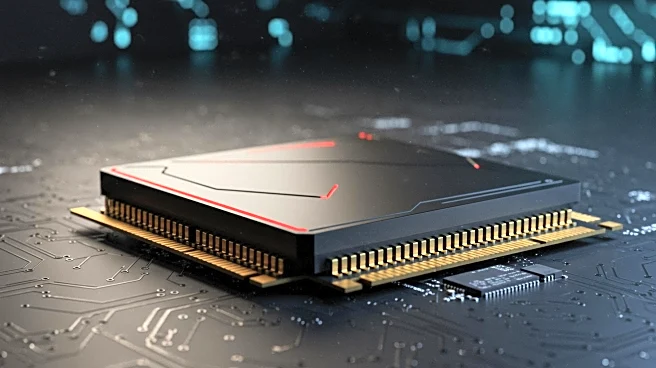What is the story about?
What's Happening?
Nvidia's next-generation Rubin GPU is experiencing production delays due to a redesign at Taiwan Semiconductor Manufacturing Company (TSMC). Analysts from Fubon Financial, a Taiwanese financial services firm, anticipate that the revised version of Rubin will be finalized by late September or October, potentially affecting production volumes in 2026. Despite the delay, Rubin is set to replace Nvidia's current Blackwell line, which continues to show impressive growth. TSMC, the primary manufacturer for Nvidia's GPUs, is also focusing on consolidating its 8-inch wafer production capacity to improve efficiency, while phasing out its 6-inch wafer manufacturing business over the next two years.
Why It's Important?
The production delay of Nvidia's Rubin GPU could impact the company's revenue projections for 2026, as Rubin is expected to be a significant driver for growth, particularly in the AI and high-performance computing markets. Despite the potential setback, Nvidia's stock has shown resilience, gaining 23% year-to-date. The delay highlights the challenges faced by tech companies in maintaining production schedules amid redesigns and supply chain adjustments. TSMC's strategic shift in wafer production aligns with market conditions and long-term business objectives, ensuring a smooth transition for customers and maintaining its position as a key player in the semiconductor industry.
What's Next?
The revised version of Nvidia's Rubin GPU is expected to be finalized by late September or October, which could lead to reduced production volumes in 2026. TSMC's focus on consolidating its 8-inch wafer production capacity and phasing out its 6-inch wafer manufacturing business over the next two years will continue to impact its production strategy. Nvidia will need to navigate these production challenges while maintaining its growth trajectory in the AI and high-performance computing markets.
Beyond the Headlines
The redesign and production delay of Nvidia's Rubin GPU underscore the complexities of semiconductor manufacturing and the importance of strategic planning in the tech industry. As companies like Nvidia and TSMC adapt to changing market conditions, they must balance innovation with operational efficiency to remain competitive. The delay also highlights the broader implications of supply chain resilience and the need for companies to anticipate and mitigate potential disruptions.















